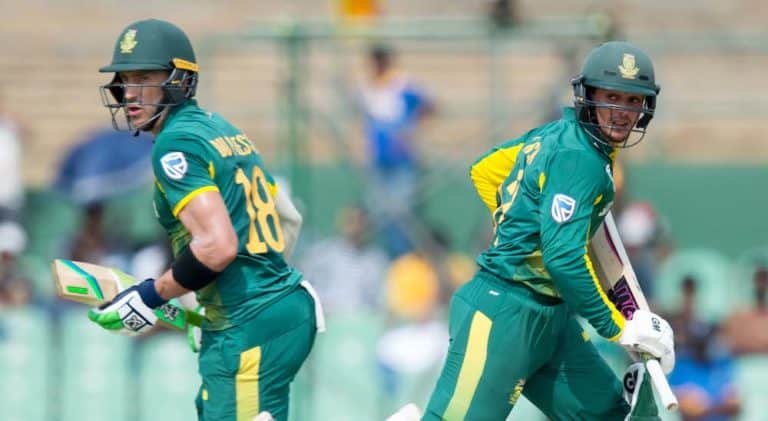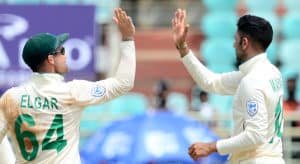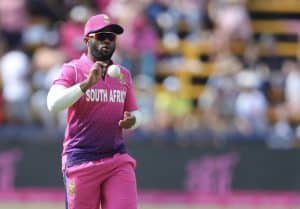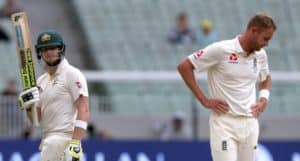Proteas captain Faf du Plessis says Quinton de Kock can learn from the responsibility of being captain.
Du Plessis returned to Cape Town from Sri Lanka on Friday, after he was ruled out of the last two ODIs and the T20I due to a shoulder injury.
Arm-in-sling, Du Plessis reassured the media that no surgery will be required to heal his injury, but he was facing a possible six-week lay-off, with the likelihood of him missing the entire Zimbabwe series.
The Proteas captaincy was handed to De Kock, and the young opener could not have had a more eye-opening first stint at the helm, losing to Sri Lanka by three runs in Kandy.
Du Plessis explained the decision to give the 25-year-old the captaincy, despite Aiden Markram’s presence, who Du Plessis labelled as a natural leader. Markram has also previously captained the side when India beat the Proteas 5-1 in South Africa in February. Du Plessis also singled out Kagiso Rabada for possessing valuable leadership qualities.
The Proteas team leadership opted for the shocking appointment of De Kock, whose only national captaincy experience had come in 2012 for the South Africa U19 side.
‘We felt that when Graeme [Smith] left, there were no real opportunities for young leaders in the team to get one or two occasions where they could captain without being the full-time captain,’ said Du Plessis.
‘You can use that opportunity to learn. There are two or three young guys in the team who have some leadership capabilities.’
The obvious choice would have been to go for stand-in T20 captain JP Duminy and former Proteas skipper Hashim Amla, but it was felt that younger players would benefit more from the responsibility.
‘With guys like Quinton, it’s more about developing their personalities and character. Someone like Quinton will grow a lot just by getting extra responsibility.
‘It doesn’t mean that he will be captain in the future or he won’t – we just see an opportunity for him to grow as a player.
‘When I do eventually come back, hopefully he will be better off for it with a better understanding of what it’s like to be a senior player in the team,’ Du Plessis added.
‘As a player, it’s easy to just focus on your own game and when you are captain you don’t have that luxury, so this will teach him a different side of cricket.’
Photo: Isuru Sameera Peiris/Gallo Images





